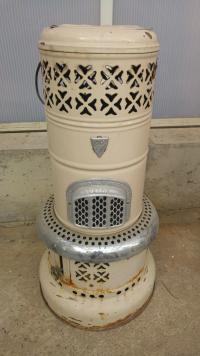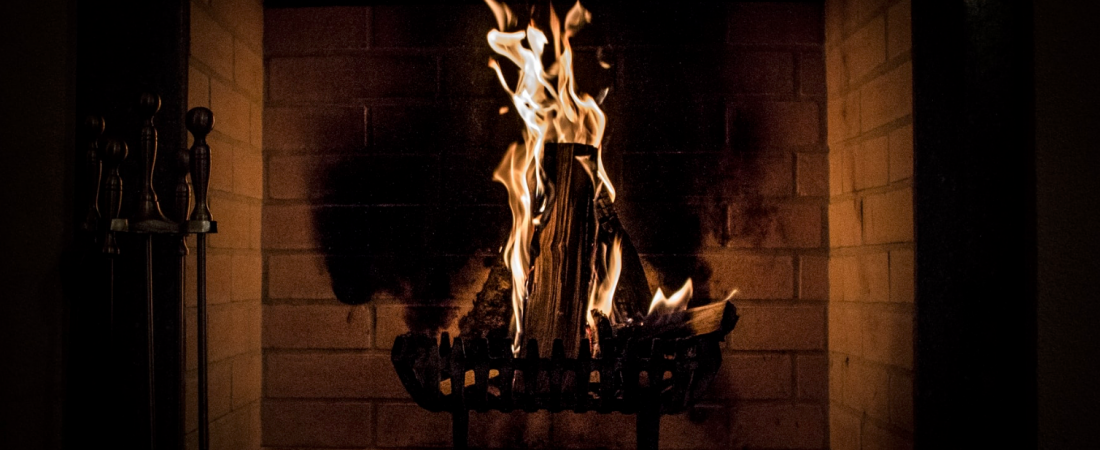"Caribbeans are enterprising and resilient people" - Paraffin Heater, by Catherine Ross at Museumand
Just seeing a photograph, never mind when I can actually see and get up close to a paraffin heater floods my soul with emotion. This household item has achieved iconic status in the minds not just of the Windrush Generation but descendants 2 or 3 generations on. This item is a symbol of so many life experiences of the Caribbean trying to settle into and make the UK their home even if many of them only planned to stay on this island’s shore for no more than 10 years to realise a few dreams.
The paraffin heater was not much to look at. It wasn’t a decorative household item but it was supremely important. It witnessed a migrant’s experience of settling into a “foreign” land.
It provided the warmth so needed in a country whose temperature rarely met that of the tropics they had been accustomed to. The humble paraffin heater became a “huddle-round” for many Caribbeans in a desperate bid to keep warm! It had another important function in the one-bedroomed Caribbean home. The paraffin heater became the accessible cooker in the shared kitchens of over-crowded multi-let houses, the cooker was almost in constant use as tenants worked shifts. Some tenants lurked around the kitchen waiting until someone else put a shilling in the meter to power it up and they brought out kettles and saucepans to cook their meal, or decided they were going to have a bath! Tenant relationships never ran smooth.
 The paraffin heater became a black woman’s “beauty-aid”. On it she heated the “iron-comb” to straighten her hair ready for a night-out, to go to church or for a special occasion event. Black men were less enthusiastic about the hairdo moments, they disliked the smell of burning hair and the singeing of scalps which happened when women were too enthusiastic in trying to get the long straight shafts a feature of English hair.
The paraffin heater became a black woman’s “beauty-aid”. On it she heated the “iron-comb” to straighten her hair ready for a night-out, to go to church or for a special occasion event. Black men were less enthusiastic about the hairdo moments, they disliked the smell of burning hair and the singeing of scalps which happened when women were too enthusiastic in trying to get the long straight shafts a feature of English hair.
The paraffin heater, this iconic item, that came into its own as a heating, cooking and beauty tool was only able to do so if migrants were lucky enough to get accommodation. Many were denied a place to stay as many landlords and house owners displayed signs in their front windows saying, “No dogs, no Irish, no Blacks” though they had the rooms, needed the money and some could well do with company rattling around as they were in large dilapidated and war-damaged properties!
Being denied access to suitable accommodation was for many early post-war arrivals of Caribbeans the greatest injustice they faced. They were asked to come and hep re-build a country but the Government failed to provide the infrastructure to enable them to do so. From sunny Caribbean islands to living in dark air-raid shelters, spaces made available by Charities for the homeless, or getting a “good deal” where 3 people had to share one-bedroomed accommodation was an outrage and a travesty of justice. People who had high expectations of “white people” and the Motherland England were let down badly and for about 20 years until Council Housing became more available and something Caribbeans were eventually able to access. Yet despite not having adequate and appropriate accommodation Caribbeans were expected to put in a day’s work in heavy industrial jobs and study to become nurses and so on.
Many Caribbeans accustomed to operating and using the Pardner Hand system (an informal saving and ending scheme) back home had to create them in the 50s because of another injustice and indignity they suffered. They were denied bank accounts, bank loans and other forms of finance. They had the money. Jobs were in abundance. Aspirational and ambitious and out of sheer need to have a comfortable place to live and call Pardner Hands were set up. In local neighbourhoods and in black-led churches they sprang and in 21st-century Britain they are still flourishing.
Through this informal saving scheme many people were able to buy their own homes, and some enterprising Caribbeans rented out rooms to other Caribbeans. At last Caribbeans had welcoming landlords, people who understood and appreciated their custom and company. Many of these members of the Windrush Generation are still landlords some 60 plus years later. Caribbeans are creative people who can always find a way around hurdles put in their way!
The paraffin heater continued to take pride of place in the Caribbean home but some found they were now being moved from the family living quarters to the dark and damp basements of the old Victorian and Edwardian houses up and down the country. There was a reason for this, basements were becoming the entertainment spaces of Caribbeans, and why because whenever they tried to socialise in British pubs, in Working Men’s Clubs and Night Clubs, they received a flat and outright refusal of entry. Some venues eventually allowed Black people in but only in limited numbers around a dozen. Some establishments would not admit mixed race couples, and some wouldn’t admit men on their own, they had to bring their own women! The Caribbean response to this discriminatory practice then was to create their own places of entertainment. Assimilation and integration, Government policy, was never going to happen if the average white person had anything to do, so enterprising Caribbeans used the basements of their home, empty local buildings in their neighbourhoods to create their social spaces, Blues Parties and Shebeens. Here Calypso and Reggae could be played, they could dine on Caribbean-fare and play Dominoes and Cards, and relationships formed without the disapproval of racist stares. Caribbeans are enterprising and resilient people!
Find out more about Catherine Ross, Museumand and how we are working together to raise awareness about Black History Month





























Leave a Comment